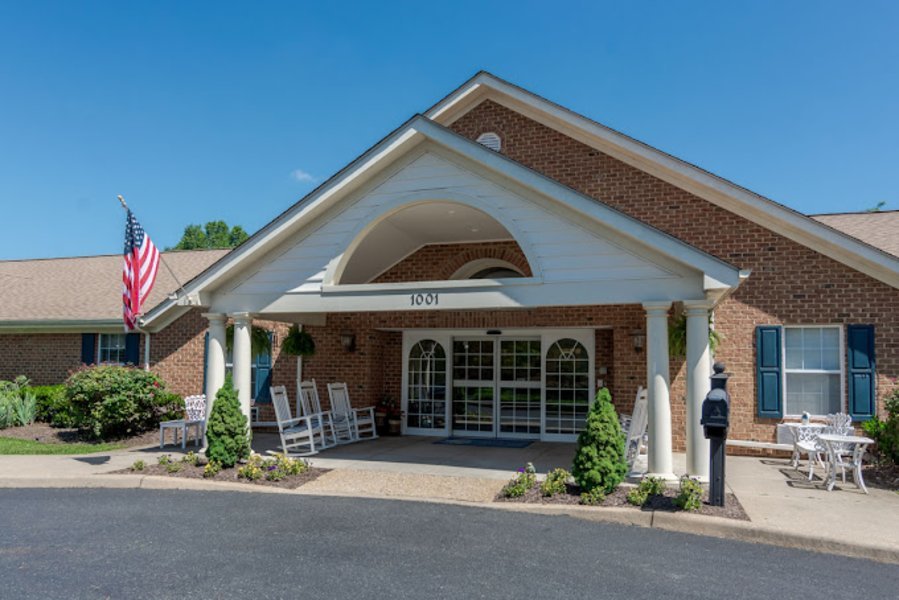As the population ages, finding quality senior services becomes increasingly important for individuals and families. Senior services encompass a wide range of supportive services and activities designed to enhance the lives of older adults. From healthcare and housing to social engagement and education, these resources play a crucial role in maintaining independence and well-being for seniors.
When seeking senior services near me, it’s essential to consider various factors to ensure the best fit for individual needs. This article will explore the different types of senior resources available, how to research local options, evaluate service providers, and make informed decisions. By understanding the landscape of senior services, readers will be better equipped to find the right support and activities to improve quality of life for themselves or their loved ones.
Understanding Senior Services
Senior services encompass a wide range of supportive services designed to enhance the lives of older adults. These services aim to help seniors maintain their independence, improve their quality of life, and address the unique challenges that come with aging.
Types of Senior Services:
Senior services near me can include various options tailored to meet different needs. Home care services provide assistance with daily activities such as bathing, dressing, and meal preparation. These services allow seniors to remain in the comfort of their own homes while receiving necessary support. Additionally, healthcare services, including medical equipment and physical therapy, may be available to help seniors manage their health conditions.
Transportation services are another crucial aspect of senior resources. These can include rides to medical appointments, shopping centers, and social activities, enabling seniors to maintain their independence and stay connected to their communities. Many areas offer discounted or free transportation options specifically for older adults.
Senior centers and community programs provide opportunities for social engagement and education. These centers often offer activities, classes, and events that promote physical and mental well-being. They serve as hubs for seniors to connect with peers, learn new skills, and stay active.
The advantages of utilizing senior services are numerous. These supportive services can significantly improve the quality of life for older adults by promoting independence and reducing isolation. Regular social interaction through community programs and activities can help combat feelings of loneliness and depression, which are common among seniors.
Senior services also play a crucial role in maintaining physical and mental health. Access to healthcare services, nutritious meals, and exercise programs can help seniors manage chronic conditions and maintain their overall well-being. Additionally, these services can provide peace of mind for family members, knowing their loved ones are receiving proper care and support.
Despite the numerous benefits, there are some misconceptions about senior services that may prevent older adults from seeking help. One common misconception is that utilizing these services means giving up independence. In reality, senior services are designed to promote independence by providing the necessary support to allow seniors to continue living in their own homes or communities.
Another misconception is that senior services are only for those with severe health issues or disabilities. However, these services cater to a wide range of needs and can benefit seniors at various stages of aging. From occasional assistance with household chores to more comprehensive care, senior services can be tailored to individual requirements.
Some seniors may also believe that these services are unaffordable or only available through government programs. In fact, there are many private organizations and community initiatives that offer affordable or even free services to seniors. It’s important for older adults and their families to explore all available options and resources in their area.
Researching Local Senior Services
When seeking senior services near me, it’s crucial to explore various resources to find the most suitable options. This process involves utilizing online platforms, visiting community centers, and consulting healthcare providers for recommendations.
Online Resources
The internet serves as a valuable tool for researching senior resources. Area Agencies on Aging (AAAs) is a network of approximately 622 non-profit organizations nationwide that provide services to older adults. These agencies offer a range of supportive services, including nutrition counseling, caregiver support, care management, and transportation assistance. To locate the nearest AAA, individuals can use online directories or government websites.
Another helpful online resource is the Aging and Disability Resource Centers (ADRCs). These centers act as a single point of entry for families to learn about long-term care support services available through federal, state, and other programs. ADRCs provide free and objective counseling services, helping seniors and their families navigate the complex landscape of senior services.
Community Centers
Local community centers play a vital role in providing senior services and activities. Senior centers often offer a wide array of programs designed to enhance the lives of older adults. These may include fitness classes, educational workshops, social events, and day trips. For example, the Federal Way Community Center in Washington offers a comprehensive senior program with water- and land-based fitness activities, classes, contests, dancing, and special events.
Many community centers also provide essential services such as meals, transportation, and health screenings. Some centers collaborate with local organizations to offer free or low-cost lunch programs, ensuring seniors have access to nutritious meals. Additionally, these centers often serve as hubs for information about other senior resources available in the area.
Healthcare Provider Recommendations
Healthcare providers can be valuable sources of information when researching senior services. Primary care physicians and specialists who work with older adults often have extensive knowledge of local supportive services. They can provide recommendations based on an individual’s specific health needs and circumstances.
For instance, Oak Street Health, a healthcare provider specializing in senior care, not only offers primary care services but also helps patients connect with outside specialists when necessary. They work closely with these specialists to ensure coordinated care and advocate for their patients’ needs.
When consulting healthcare providers, it’s essential to discuss any specific concerns or requirements. This may include assistance with activities of daily living, management of chronic conditions, or social engagement opportunities. Healthcare professionals can offer insights into which services might be most beneficial and how to access them.
By utilizing these research methods – online resources, community centers, and healthcare provider recommendations – seniors and their families can gain a comprehensive understanding of the available senior services in their area. This knowledge empowers them to make informed decisions about which supportive services and activities will best enhance their quality of life and maintain their independence.
Evaluating Senior Service Providers
When searching for senior services near me, it’s crucial to thoroughly evaluate potential providers to ensure the best care for your loved ones. This process involves examining several key factors that contribute to the quality and reliability of senior resources.
Accreditation and Licensing
One of the first steps in evaluating senior service providers is to verify their accreditation and licensing status. Many states require home care agencies to be licensed to provide services. While licensure doesn’t guarantee quality, it indicates that the provider meets basic standards of care. Licensed agencies are accountable to the state for any misconduct or abuse by their employees, offering an additional layer of protection for seniors and their families.
It’s important to note that home health care agencies may be licensed differently than home care agencies. Some organizations, such as the Assisted Living Community (ALC) Accreditation Program, offer accreditation that goes beyond basic licensing requirements. These accreditations often involve rigorous standards developed by experts in geriatrics, dementia care, and senior housing.
Staff Qualifications
The qualifications and training of staff members are critical factors in the quality of senior services. When evaluating providers, inquire about their hiring practices and the qualifications required for their caregivers. Many reputable agencies employ Certified Senior Advisors (CSAs), professionals who have demonstrated advanced knowledge in the multiple processes of aging.
Ask about ongoing training programs for staff members. Quality providers often offer continuous education to ensure their caregivers are up-to-date with the latest supportive services and best practices in senior care. This is particularly important for specialized care needs, such as dementia or Parkinson’s disease.
Client Reviews and Testimonials
Client reviews and testimonials can provide valuable insights into the quality of care provided by senior service agencies. These firsthand accounts offer a glimpse into the day-to-day experiences of seniors and their families with the provider’s services and activities.
When reviewing testimonials, look for comments about the caregivers’ compassion, reliability, and ability to engage seniors in meaningful activities. Pay attention to feedback about the agency’s responsiveness to concerns and their flexibility in adapting to changing needs.
While online reviews can be helpful, it’s also beneficial to request references from the agency. Speaking directly with current or former clients can give you a more comprehensive understanding of the provider’s strengths and potential weaknesses.
Remember that the evaluation process should be thorough and tailored to your specific needs. By carefully assessing accreditation, staff qualifications, and client experiences, you can make an informed decision about the best senior resources for your loved ones.
Making the Right Choice for Your Needs
Assessing Individual Requirements
When selecting senior services, it’s crucial to evaluate the specific needs of the individual. This process involves a comprehensive assessment of physical, cognitive, and emotional requirements. Seniors and their families should consider factors such as the ability to perform activities of daily living, medication management needs, and any existing health conditions that require specialized care.
It’s also important to assess mobility levels and determine if safety features or mobility aids are necessary. Cognitive function should be evaluated to identify if memory support or specialized care for conditions like dementia is required. Social and emotional needs should also be taken into account, as well as personal interests and lifestyle preferences.
Comparing Service Options
Once individual requirements have been assessed, the next step is to compare available senior services. This involves researching local options and evaluating how well each service can meet the identified needs. It’s essential to consider various types of care, such as in-home care, assisted living communities, and nursing homes.
In-home care allows seniors to remain in the comfort of their own homes while receiving necessary support. Assisted living communities offer a balance between independence and assistance, providing a safe and social environment. Nursing homes are suitable for those with complex medical needs requiring round-the-clock care.
When comparing options, consider factors such as the level of care provided, available amenities, social activities, and personalized services. It’s also important to evaluate the qualifications and training of staff members, as well as the overall atmosphere and environment of each option.
Trial Periods and Flexibility
Many senior service providers offer trial periods or short-term stays, allowing seniors and their families to experience the care firsthand before making a long-term commitment. These trial periods can be invaluable in determining if a particular service or community is the right fit.
During a trial period, seniors can participate in activities, interact with staff and other residents, and get a feel for the daily routine. This experience can help alleviate concerns and provide a realistic expectation of what life would be like with the chosen senior service.
It’s important to note that even during trial periods, caregivers are considered employees, and all labor laws apply. Families should be aware of their responsibilities regarding payment, taxes, and insurance during these periods.
Flexibility is also a key factor to consider when choosing senior services. As needs may change over time, it’s beneficial to select a provider that offers a range of services and can adapt to evolving requirements. This ensures that seniors can receive appropriate care as their needs progress, without the need for frequent transitions between different providers or communities.
Conclusion
Navigating the world of senior services can be overwhelming, but taking the time to research and evaluate options has a significant impact on the quality of life for older adults. By understanding the various types of services available, from in-home care to community programs, families can make informed decisions that cater to their loved ones’ unique needs. The process of finding the right support involves careful consideration of individual requirements, provider qualifications, and the flexibility to adapt as needs change over time.
Ultimately, the goal is to enhance the lives of seniors by promoting independence, social engagement, and overall well-being. By tapping into local resources, consulting healthcare providers, and leveraging online platforms, families can uncover a wealth of options to support their aging loved ones. Remember, the journey to find the best senior services is ongoing, and it’s okay to adjust choices as circumstances evolve. With the right approach, seniors can access the support they need to thrive in their golden years.
FAQs
What are the most commonly needed services for elderly individuals?
Seniors often require a variety of services, with personal care being one of the most sought after. This includes assistance with daily activities, medication management, nutritional and meal support, help with mobility and transportation, healthcare services, financial management, ensuring safety and security, and providing opportunities for social interaction.
How can someone outside Southwest Florida contact the Florida senior help line?
For those outside Southwest Florida needing assistance, they can reach the statewide Helpline by dialing 1-800-96-ELDER. If you are outside the state of Florida, you should contact the Eldercare Locator at 1-800-677-1116 for help.
Are there in-home support services available for seniors in Florida?
Yes, the Florida Department of Elder Affairs administers the Older Americans Act (OAA), which supports seniors with services such as homemaking, home-delivered meals, medical transportation, home health aides, adult day care, and more. This program targets individuals aged 60 and over, particularly those who are economically or socially in need.
What does Always Best Care offer in terms of senior services?
Always Best Care provides a range of senior services including in-home care, where professionals deliver expert care services directly in a senior’s home. They also offer senior living referral services to assist in finding appropriate senior living communities, skilled home health services, special care services tailored to individual needs, and a veterans assistance program to support senior veterans.












